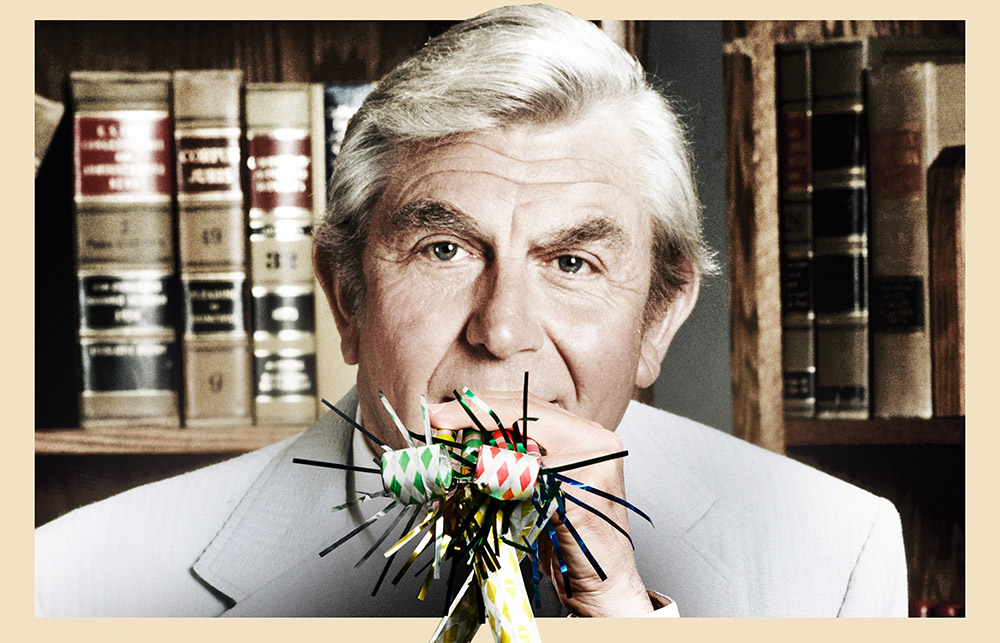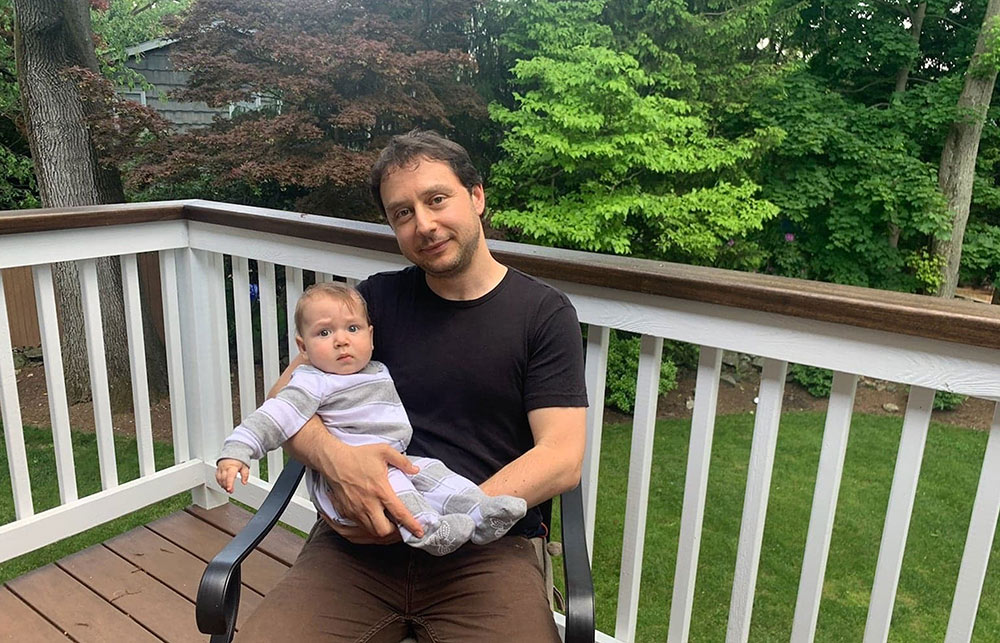
以往情况下,休•桑德勒每天在纽约市中央车站与郊区的家之间,要花两个小时通勤。与曼哈顿成千上万长时间待在律所里的律师一样,桑德勒认为去办公室是其工作必不可少的一部分。但到了今年3月,他和其他许多律师第一次开始了全天在家里办公。对桑德勒来说,这是一次重要的调整,但出人意料的是,他对这样的调整感到非常开心。
他说:“在家办公的体验非常好。我有一个孩子才7个月大,这段时间在家里办公给我带来了许多额外的好处,比如我可以陪着孩子。”
许多律师在职业生涯中首次在家办公。他们表达的情绪五花八门,有人说在家办公很轻松,也有人说自己感受到了自大学毕业以后久违的纯粹的快乐。一位芝加哥律师说:“这是我人生中最美好的三个月。”因为自从不需要通勤以后,他每天多出了两个小时陪伴家人。
这些律师们的体验也体现了疫情对公司业务律师事务所的企业文化的冲击。这种在法律界被称为“大律所”的文化,其特征是许多律师每天在律所里待到晚上9点甚至更晚,而初级律师们则面临着争取“露面时间”的无形压力,他们要长时间待在律所里,希望某一位合伙人能够注意到他们初入职场的热情和投入。

过去十年,科技和传媒领域的雇主至少在部分时间,对于远程办公持更加开放的态度,但律师事务所却一直因循守旧。
桑德勒说:“资深律师们认为,在办公室里办公更有价值。”
没有人知道他们持这种观点的理由是什么。这或许体现了一个事实,即许多大律所的办公室视野开阔,一览无余,会议室富丽堂皇,象征了权力和威望,而且律所合伙人喜欢坐满人的办公室营造出来的帝国般的感觉。另外一种可能是源自法律界的保守性。
为律师事务所提供咨询服务的前律师桑•李表示,大律所十分尊崇一致性,导致管理者不愿意接受与技术和“灵活办公场所”等有关的新趋势,除非其他律所已经先行行动起来。大部分律师预计疫情导致的停工可能会持续几周,但现在停工将无限期延续下去,这让人们长期以来的一些假设被彻底推翻。
律师们对在家办公的态度也发生了变化。高级合伙人们发现Zoom等工具效果显著,甚至优于在会议室里召开的电话会议,而电话会议是大型律所必不可少的。李表示,反常的是,律所发现在疫情期间远程办公反而提高了员工的社区感。
她说:“大型律所的传统做法给人的感觉是人与人之间是孤立的。但现在每个人都在家办公,都有共同的体验,所以,在技术的帮助下,律师们更容易表现出自己的本性。”
温斯顿律师事务所(Winston & Strawn)的证券律师泰勒•格兰特从曼哈顿市中心的大都会人寿大厦,改为在泽西城的家里办公,他也发现了类似的现象。他说,许多同事现在花更多时间陪孩子,参加家庭聚餐,这些活动以前从来不会出现在他们的日常安排当中。
格兰特目前单身。他说省去通勤让他可以更灵活地安排每天的时间。他在大部分情况下每天会多工作一个小时,另外,他也有更多的时间来安排个人事务。
当然,对于律师们来说,在疫情期间并非一切都是美好的。尽管破产法和保险法等领域蓬勃发展,但疫情造成的经济影响导致许多律师的业务大幅减少,律所无论大小都在执行裁员和紧缩措施。
格兰特表示,虽然他很喜欢在家办公带来的这种新的灵活性,但他担心初级律师可能会失去在办公室里接受导师指导的机会。
他提到律所和许多公司都有支持年轻员工接受非正式的面对面指导的文化。他说:“同事之间偶尔可以相互拜访,这种方式十分有益。”格兰特补充说,通过电子邮件与客户或其他律师联络可能“不够方便”。
桑德勒说,疫情促使法律界在技术方面前进了一大步,但他担心技术的作用是有限的。作为诉讼律师,他想知道在Zoom时代,法院系统能否进行陪审团审判(宪法授予的权利)。桑德勒同样担心围绕律师事务所建立的经济生态系统,他说在纽约中央车站附近有许多餐厅和小商店的业务都严重依赖律师消费。
更广泛地说,律师们与其他职场人士一样,都在努力应对疫情对其职业带来的巨大变化。但李说,律师尤其愿意学习新技能和新知识,这种品质将在疫情期间给他们带来巨大的帮助。
她说:“律师都是终生学习者。”
至少现在他们可以在家吃晚饭了。(财富中文网)
译者:Biz
以往情况下,休•桑德勒每天在纽约市中央车站与郊区的家之间,要花两个小时通勤。与曼哈顿成千上万长时间待在律所里的律师一样,桑德勒认为去办公室是其工作必不可少的一部分。但到了今年3月,他和其他许多律师第一次开始了全天在家里办公。对桑德勒来说,这是一次重要的调整,但出人意料的是,他对这样的调整感到非常开心。
他说:“在家办公的体验非常好。我有一个孩子才7个月大,这段时间在家里办公给我带来了许多额外的好处,比如我可以陪着孩子。”
许多律师在职业生涯中首次在家办公。他们表达的情绪五花八门,有人说在家办公很轻松,也有人说自己感受到了自大学毕业以后久违的纯粹的快乐。一位芝加哥律师说:“这是我人生中最美好的三个月。”因为自从不需要通勤以后,他每天多出了两个小时陪伴家人。
这些律师们的体验也体现了疫情对公司业务律师事务所的企业文化的冲击。这种在法律界被称为“大律所”的文化,其特征是许多律师每天在律所里待到晚上9点甚至更晚,而初级律师们则面临着争取“露面时间”的无形压力,他们要长时间待在律所里,希望某一位合伙人能够注意到他们初入职场的热情和投入。
过去十年,科技和传媒领域的雇主至少在部分时间,对于远程办公持更加开放的态度,但律师事务所却一直因循守旧。
桑德勒说:“资深律师们认为,在办公室里办公更有价值。”
没有人知道他们持这种观点的理由是什么。这或许体现了一个事实,即许多大律所的办公室视野开阔,一览无余,会议室富丽堂皇,象征了权力和威望,而且律所合伙人喜欢坐满人的办公室营造出来的帝国般的感觉。另外一种可能是源自法律界的保守性。
为律师事务所提供咨询服务的前律师桑•李表示,大律所十分尊崇一致性,导致管理者不愿意接受与技术和“灵活办公场所”等有关的新趋势,除非其他律所已经先行行动起来。大部分律师预计疫情导致的停工可能会持续几周,但现在停工将无限期延续下去,这让人们长期以来的一些假设被彻底推翻。
律师们对在家办公的态度也发生了变化。高级合伙人们发现Zoom等工具效果显著,甚至优于在会议室里召开的电话会议,而电话会议是大型律所必不可少的。李表示,反常的是,律所发现在疫情期间远程办公反而提高了员工的社区感。
她说:“大型律所的传统做法给人的感觉是人与人之间是孤立的。但现在每个人都在家办公,都有共同的体验,所以,在技术的帮助下,律师们更容易表现出自己的本性。”
温斯顿律师事务所(Winston & Strawn)的证券律师泰勒•格兰特从曼哈顿市中心的大都会人寿大厦,改为在泽西城的家里办公,他也发现了类似的现象。他说,许多同事现在花更多时间陪孩子,参加家庭聚餐,这些活动以前从来不会出现在他们的日常安排当中。
格兰特目前单身。他说省去通勤让他可以更灵活地安排每天的时间。他在大部分情况下每天会多工作一个小时,另外,他也有更多的时间来安排个人事务。
当然,对于律师们来说,在疫情期间并非一切都是美好的。尽管破产法和保险法等领域蓬勃发展,但疫情造成的经济影响导致许多律师的业务大幅减少,律所无论大小都在执行裁员和紧缩措施。
格兰特表示,虽然他很喜欢在家办公带来的这种新的灵活性,但他担心初级律师可能会失去在办公室里接受导师指导的机会。
他提到律所和许多公司都有支持年轻员工接受非正式的面对面指导的文化。他说:“同事之间偶尔可以相互拜访,这种方式十分有益。”格兰特补充说,通过电子邮件与客户或其他律师联络可能“不够方便”。
桑德勒说,疫情促使法律界在技术方面前进了一大步,但他担心技术的作用是有限的。作为诉讼律师,他想知道在Zoom时代,法院系统能否进行陪审团审判(宪法授予的权利)。桑德勒同样担心围绕律师事务所建立的经济生态系统,他说在纽约中央车站附近有许多餐厅和小商店的业务都严重依赖律师消费。
更广泛地说,律师们与其他职场人士一样,都在努力应对疫情对其职业带来的巨大变化。但李说,律师尤其愿意学习新技能和新知识,这种品质将在疫情期间给他们带来巨大的帮助。
她说:“律师都是终生学习者。”
至少现在他们可以在家吃晚饭了。(财富中文网)
译者:Biz
Hugh Sandler used to commute two hours a day between Grand Central Terminal and his home in the New York City suburbs. Like thousands of other attorneys who logged long hours in Manhattan law firms, Sandler regarded coming into the office as an essential part of his job. Then came March, which marked the first time he and many other lawyers worked full days at home. For Sandler, it was a major adjustment—but also a surprisingly pleasant one.
“My experience has been very positive. I have a 7-month-old and being at home at this time has created a lot of additional benefits, including that I can be around for him,” he says.
Other lawyers—many working from home for the first time in their careers—described a variety of emotions, ranging from relief to something many haven’t felt since college: sheer, unadulterated delight. “Best three months of my life,” said one Chicago lawyer who has gained two hours a day of time with his family since giving up his commute.
Their experience reflects how the pandemic has shaken up the culture of corporate law firms. That culture, known in the legal world as “Big Law,” is characterized by long hours that obliged many lawyers to stay at the firm till 9 p.m. or later, and where junior associates faced subtle pressure to seek out “face time”—hanging around the office at all hours in hopes a partner would notice their budding enthusiasm and commitment.
In the past decade, even as employers in fields like tech and media gave workers more latitude to work remotely at least part of the time, law firms have stayed rooted in the old ways.
“Among senior attorneys, there is a belief that being in the office is more valuable,” notes Sandler.
Why this is the case isn’t precisely clear. It may reflect the fact that many Big Law offices are physical monuments to power and prestige—many have sweeping views and imposing boardrooms—and that law firm partners like the sense of empire a packed office provides. Or it may be the conservative nature of the legal profession.
According to Sang Lee, a former attorney who advises law firms, there is a powerful strain of conformity in Big Law that has made managers reluctant to embrace new trends—including ones related to technology and “agile workplaces”—unless others are doing the same. But as pandemic shutdowns, which most lawyers had expected would last a matter of weeks, drag on indefinitely, many long-held assumptions are now being overturned.
This includes attitudes toward working from home. Senior partners are discovering that tools like Zoom function remarkably well, and are even superior to the boardroom conference calls that are a fixture of Big Law life. And paradoxically, law firms are finding remote work during the pandemic has increased a sense of community, according to Lee.
“The traditional practice of Big Law can feel isolating. Because everyone is working from home and having this communal experience, technology has allowed lawyers to lean into their own humanity,” she says.
Tyler Grant, a securities lawyer at Winston & Strawn, discovered a similar phenomenon after he began working from his home in Jersey City rather than the Met Life building in midtown Manhattan. He says many of his colleagues now enjoy spending more time with their children, and attending family dinners that haven’t been part of their routines for years, if ever.
For Grant, who is single, he says the lack of a commute has afforded him more flexibility—letting him put in an additional hour of work most days, while also giving him more time for personal activities.
Not everything about practicing law during the pandemic is rosy, of course. While some practice areas are thriving—most notably bankruptcy and insurance law—the economic toll of the outbreak has led work to dry up for many lawyers, and firms big and small are implementing layoffs and austerity measures.
And Grant says that, while he appreciates the newfound flexibility of working from home, he worries junior lawyers are missing out on opportunities for mentorship that come with being in the office.
“Being able to pop in is such a useful tool,” he says, describing a culture in law firms and elsewhere that lets younger employees receive informal, in-person guidance. Grant adds that trying to network with clients or other lawyers via email can be “awkward.”
Sandler, meanwhile, says the pandemic has led the legal profession to take a giant leap forward in terms of technology, but worries that there are limits to what tech can achieve. As a litigator, he wonders how the court system will address trials by jury—a right enshrined by the Constitution—in the age of Zoom. Sandler also frets for the economic ecosystem that has built up around law firms, pointing to the numerous restaurants and small shops near Grand Central Terminal that rely heavily on lawyers for their business.
More broadly, lawyers are like many other professionals who are trying to cope with radical changes to their job brought about by the pandemic. Lee, though, says attorneys are particularly open to acquiring new skills and knowledge, and that this trait will serve them well amid the turmoil.
“This a community of lifelong learners,” she says.
And, at least for now, they can be home for dinner.






